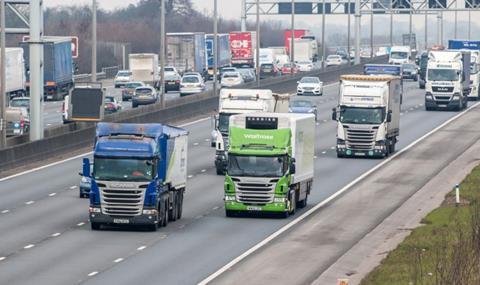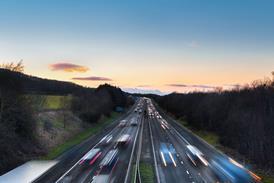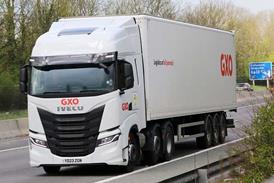
There is a “compelling case” for commercial vehicles to pay more under a national road pricing regime, according to a report published today (16 May) by the Social Market Foundation.
The report comes as ministers prepare to respond to the House of Commons Transport Select Committee, which earlier this year said that the government should start work on a road-pricing system “without delay”.
Entitled Miles Ahead, the report calls for government to “work at pace” to develop the infrastructure to support a simple national-level road pricing scheme - with a flat per mile rate and a free mileage allowance – and set out a timetable for implementing it.
It comes as the growth in electric vehicles - which do not incur fuel duty – threatens to eventually leave the Treasury with a £30bn gap in tax revenue.
Launching the report SMF said ministers must have the “courage” to tell voters that a shift to road charging is “inevitable and sensible”, to avert that shortfall.
The report recommends a fixed per mile charge for motorists based on the miles they drive - which it said would be fairer since poorer motorists drive fewer miles - and more popular than the current fuel duty regime.
The report also makes the case for including a free mileage allowance akin to the tax allowance, meaning low-use drivers would not pay any charge and high-mileage drivers would make a contribution proportionate to their use of the roads, which could help cut emissions.
The report estimates the national road pricing regime would raise the same sums as fuel duty but distribute the cost in a fairer way and help with the cost of living crisis, cutting annual costs for almost half of all motorists under the scheme.
However the report says a different regime would need to be implanted for commercial vehicles. It states: “A national road pricing regime need not be exactly the same for commercial vehicles and indeed there are likely to be compelling reasons for applying a different per mile rate to commercial road users, and similarly a different or no free mileage allowance.
Read more
- New road pricing scheme looms for hauliers
- National road-pricing scheme to replace fuel duty ‘must not increase hauliers’ costs’, MPs told
- New road tax would cover lost fuel revenue in shift to electric vehicles
“This would reflect the fact that externalities generated by commercial vehicle use are likely to differ from household use – for example in terms of risks to public safety and the types of roads used by commercial vehicles.
“Heavy goods vehicles are the only vehicle type to travel more distance on Strategic Road Network roads than on locally-managed roads.
“Combined with their heavier weight, they are likely to contribute proportionally more to damage to major roads in Britain, something that might need to be reflected in the per mile charge in any road pricing regime.”
Scott Corfe, SMF research director, said: “The current system of fuel duty is unfair, unpopular and unsustainable. A properly designed road-pricing regime will be fair, popular and good for the public finances and the environment.
“Voters know this, and privately so do the politicians. All that’s needed is the political courage to accept that road pricing is inevitable and sensible.
“The costs of driving are a factor in the cost-of-living crisis hitting many households, and fuel duty hits low-income people hardest. Road-pricing would be a progressive alternative, taking some of that burden away from those least able to pay it.”
Lord Young of Cookham who will argue for the scheme in a Commons debate today, said: “Successive administrations have looked at the case for road pricing and found it perfectly reasonable and sensible - then done nothing because they believe the public will not accept the change.
“This report challenges that assumption. It shows that, as so often, the public are more sensible and mature than political debate gives them credit for.
He added: “The welcome shift towards electric vehicles raises a clear question about the future of fuel duty levied on petrol and diesel.
“The unpopularity of that duty has grown steadily too. As this report shows, a well-designed system of road-pricing would be fairer and more popular than the status quo.”













![Mercedes-Benz_eActros_600_(1)[1]](https://d2cohhpa0jt4tw.cloudfront.net/Pictures/274x183/8/2/0/17820_mercedesbenz_eactros_600_11_978080.jpg)